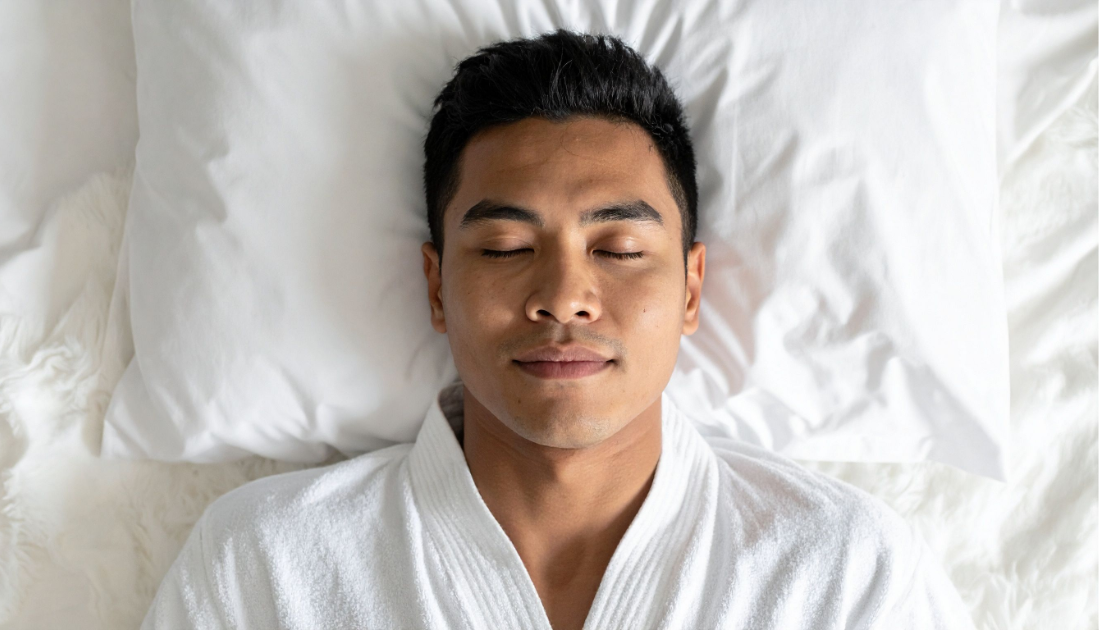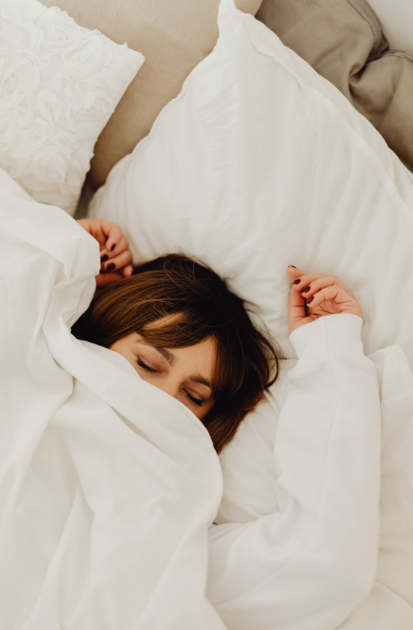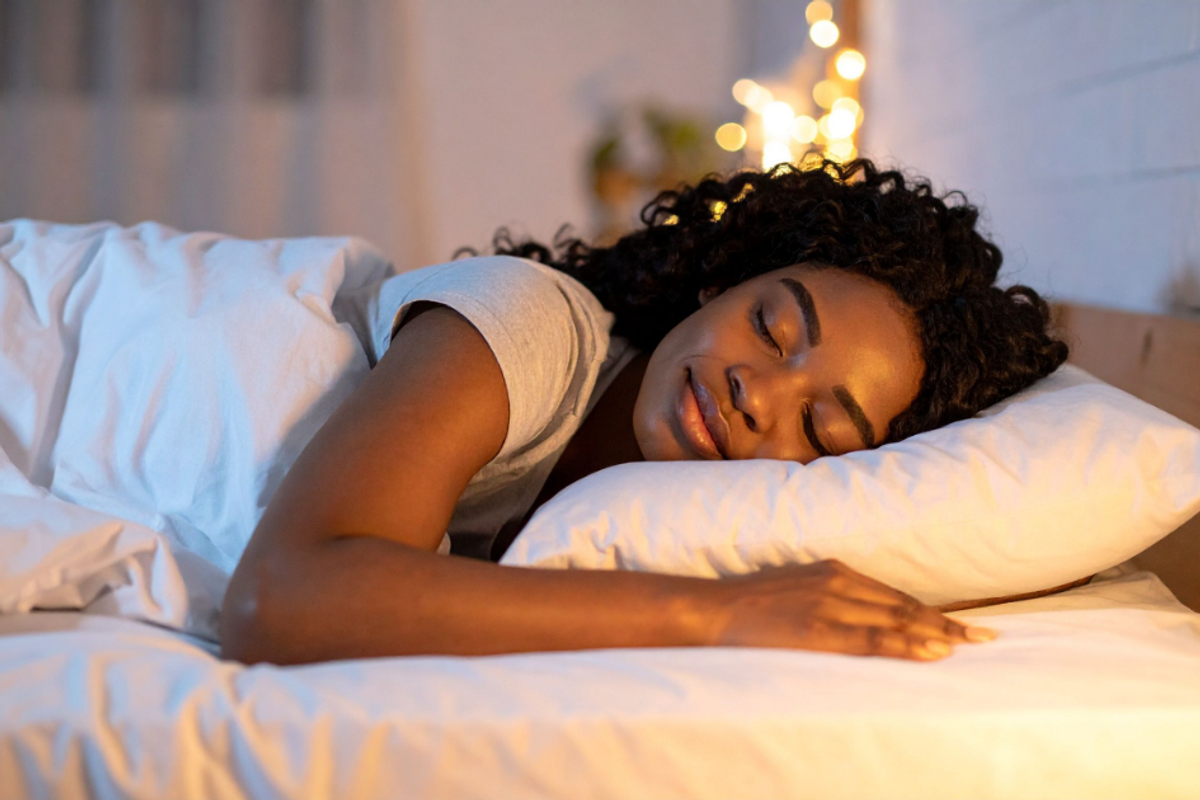Millennials and Gen Z ditched top sheets much to the dismay of older generations. Who's right?
Team duvet or team top sheet?
A woman sleeps peacefully in bed.
Once again, the youngins are flabbergasting the older generations with their disregard for once-important things they now deem unnecessary. There's always something that gets dropped or altered generation to generation. We learn better ways to do things and technology makes certain practices obsolete. But in one area, it doesn't matter how far we've come: our beds still need sheets to cover the mattress.
The debate is on the use of top sheets, also known as flat sheets. They're the sheets that keep your body from touching the comforter, and most Gen X and Boomers are firmly for the use of top sheets as a hygiene practice. The idea is the top sheet keeps your dead skin cells and body oils from dirtying your comforter, causing you to have to wash it more often.
Apparently, Millennials and Gen Zers are uninterested in using a top sheet while sleeping. In fact, they'd rather just get a duvet cover, though they may be cumbersome. A duvet cover can be washed fairly frequently, but some may opt for a simple comforter, a cheaper option that should be washed even more often. Still, many young people don't care how much more frequently they'll need to wash their comforters because their distain for a top sheet is that strong.

But why on earth do Millennials and Gen Zers hate top sheets? It turns out it's mostly about practicality. Many Millennials are on the move holding a full-time job and a side hustle or two to make ends meet. Thus, to add an extra step when making the bed seems unnecessary.
“For a younger demographic, eliminating that step when making the bed in the morning really gives you a jump start on the day," Ariel Kay, CEO of Parachute tells Wall Street Journal.
Parachute is a company that offers bedding sets sans top sheets for folks who just don't like them and, boy, has Kay heard everyone's unsolicited opinions on the matter. She told WSJ that people will stop her on the street to get into debates about the importance or unimportance of top sheets. Yikes.
In a since deleted tweet, @JesseLynnHarte writes, "People say millennials 'killed' chain restaurants, marriage, & napkins... But WHEN will they acknowledge our greatest take-down yet?? TOP SHEETS. I don’t know a single millennial who uses one. Top sheets are archaic. This is just the truth."
It would seem that Millennials and Gen Z would much rather wash their duvet covers weekly than to add a flat sheet into the mix. One big complaint about the flat sheet that adds another con to the list is they get bunched up or tangled around your legs if you're a restless sleeper. Not everyone likes hotel tucked corners on their sheets because it can feel confining.

But if you run hot, Boomers and Gen Xers might be onto something with the top sheet. It would seem that that thin piece of material that irritates some people can help control your body temperature according to USA Today. Even if you don't tend to need the cooling effect of a top sheet, what Mary Johnson, Tide Principal Scientist at Procter & Gamble has to say in a USA Today follow up article, just may make you rethink ditching the top sheet.
Simply by existing, "people produce one liter of sweat, 40 grams of sebum, 10 grams of salt, and 2 billion skin cells. All that stuff that happens below the waist [and] up by your head—skincare products, hair care products, ear wax, snot, drool, lots of really gross stuff—is transferred to your sheets," Johnson tells the outlet.
So whether you're team top sheet or not, it may be a good idea to at least wash whatever you use to cover your bed at least once a week. It couldn't hurt.
@goodhousekeepingofficial We asked the #GoodHousekeeping team what they really think about #topsheets, and the answers might surprise you. 😆 Keep watching to find out where everyone stands in this epic #bedding #debate.
This article originally appeared last year. It has been updated.

